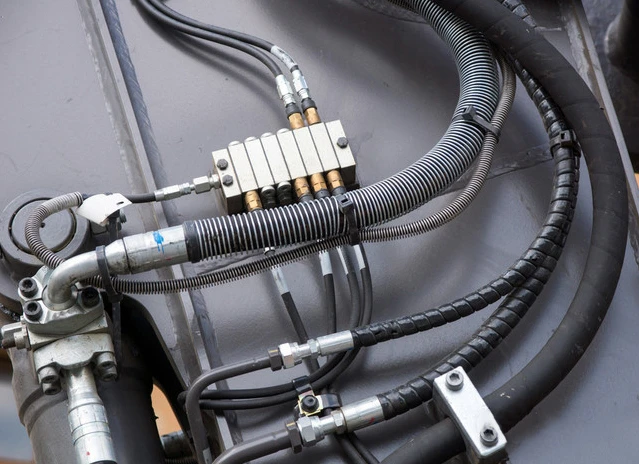Hydraulic hoses are critical components in a variety of industries, facilitating the transportation of hydraulic fluid between different parts of a system. Understanding the different types of hydraulic hoses available can greatly enhance the safety, efficiency, and longevity of machinery and vehicles. This piece provides a comprehensive exploration of hydraulic hoses, grounded in real-world experience and expertise to help you make informed decisions tailored to your specific needs.
Selecting the right hydraulic hose begins with understanding the different types and their applications. Hydraulic hoses can be categorized by several factors, including the material, construction type, and the intended application environment.
First, let's delve into the material used in hydraulic hoses. The core material generally dictates the hose's durability and flexibility. Common materials include rubber, thermoplastics, and PTFE (Polytetrafluoroethylene). Rubber hoses are most prevalent due to their flexibility and resilient nature, making them suitable for a broad array of applications. Thermoplastic hoses, however, offer superior chemical resistance and can perform well under high temperatures, providing a versatile option for many industrial applications. PTFE hoses are known for their excellent chemical resistance and non-stick properties, critical in situations that require minimal contamination and high purity standards.
The construction of hydraulic hoses also influences their performance. Typically, hoses are constructed from layers that may include an inner tube, a reinforcement layer, and an outer cover. The reinforcement is crucial for maintaining the hose's integrity under high pressure. Common reinforcement types include braided, spiral, or textile materials. Braided hoses are more flexible and easier to handle, often used in moderate-pressure applications. Spiral hoses, on the other hand, can withstand higher pressures and are preferable in demanding industrial environments.
Understanding the specific application will further guide the selection process. High-pressure hydraulic hoses are necessary in construction equipment, such as bulldozers and excavators, where hydraulic systems are vital for movement and function. For agriculture, medium-pressure hoses that provide optimal flexibility without compromising strength support operations like irrigation. Meanwhile, low-pressure hoses are best suited for implementing hydraulic systems in chemical processing due to their ability to handle chemical exposure safely.types of hydraulic hose
The environment in which these hoses operate also dramatically impacts their lifespan and performance. For instance, in outdoor applications where exposure to fluctuating weather conditions is common, hoses with UV-resistant materials are preferable to prevent degradation over time. Similarly, applications that involve exposure to oil, chemicals, or extreme temperatures require specially-designed hoses to withstand these harsh conditions without losing effectiveness.
From a safety perspective, hydraulic hose failure can lead to catastrophic results, including leaks that cause injury and equipment downtime. Regular inspections and maintenance play a critical role in preventing these failures. Ensuring that hoses are correctly routed and that fittings are securely fastened minimizes risks. It's advised to follow the manufacturer's guidelines regarding maintenance schedules and pressure specifications to extend the lifespan of these hoses.
For industrial specialists and engineers, partnering with a reputable hydraulic hose supplier is paramount. They can provide insights into the latest innovations and standards in the field, ensuring you have access to products that meet evolving industry demands. Additionally, suppliers often offer custom solutions tailored to unique operational requirements, enhancing system performance and reliability.
In conclusion, selecting the appropriate hydraulic hose involves understanding the specific needs based on material composition, construction type, and application environment. By recognizing these factors, industries can improve safety, efficiency, and operational reliability. The integration of firsthand industry experience and expert insights forms the backbone of any successful hydraulic system, and choosing the correct hose plays a significant role in achieving this success. Always ensure that your choices align with industry standards and leverage advanced technologies to stay at the forefront of industrial hydraulic applications.
OUR LATEST NEWS
Strict quality control strict production team to ensure stable products quality. Scientific personnel management, efficient production arrangements to ensure our timely delivery.























